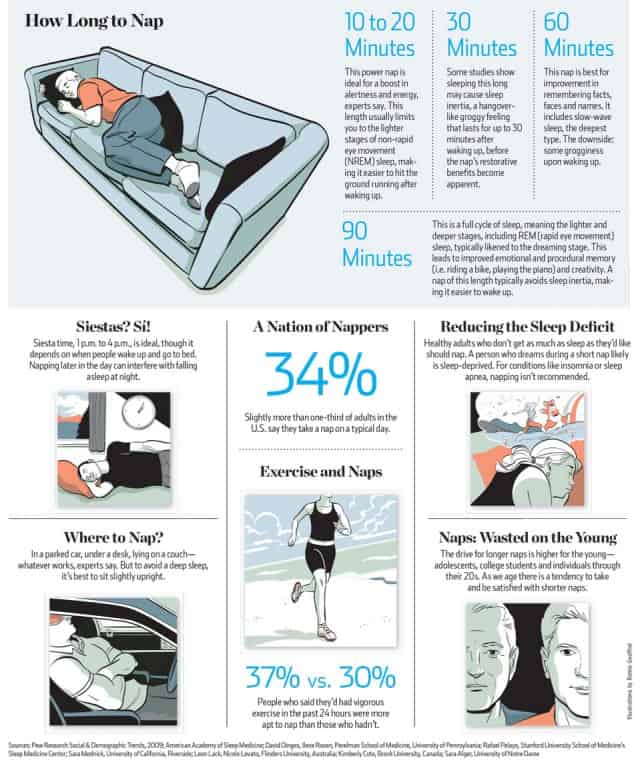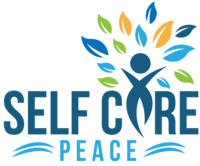Table of Contents
The afternoon slump is a period of fatigue and low energy that typically occurs in the mid-afternoon. It is caused by a number of factors, including a drop in blood sugar levels, dehydration, and stress.
Our energy levels peak and trough as part of the circadian rhythm, which is the body’s internal clock. Our energy levels naturally dip in the afternoon as our bodies prepare for the evening.
The symptoms of the afternoon slump can include:
* Fatigue
* Low energy
* Difficulty concentrating
* Irritability
* Headaches
The crashing fatigue in the afternoon can have a significant impact on our productivity. When we’re feeling tired and sluggish, it’s difficult to focus and get work done.
In this article, we will discuss 8 simple ways to manage your energy levels during the afternoon slump. By following these tips, you can boost your energy levels and improve your productivity.

Eat regular meals and snacks to maintain your energy levels.
Eating regular meals and snacks throughout the day can help to keep your blood sugar levels stable and prevent fatigue, maintaining your energy levels. When your blood sugar levels drop, you may feel tired, sluggish, and have difficulty concentrating. Eating regular meals and snacks helps to keep your blood sugar levels stable, which can help to prevent these symptoms.
Choose snacks that are high in protein and complex carbohydrates. Protein and complex carbohydrates are both slow-digesting nutrients that help to keep your blood sugar levels stable. Some good snacks that are high in protein and complex carbohydrates include:
- Yogurt with granola
- Hard-boiled eggs
- Fruit and nuts
- Trail mix
- Whole-wheat crackers with cheese
- Hummus and vegetables
How often should you eat meals and snacks? The frequency with which you should eat meals and snacks will vary depending on your individual needs. However, a good rule of thumb is to eat something every 2-3 hours. This will help to keep your blood sugar levels stable and prevent fatigue.
What are some signs that you need to eat a meal or snack? Some signs that you need to eat a meal or snack include:
- Feeling hungry
- Feeling tired or sluggish
- Difficulty concentrating
- Headaches
- Irritability
How can you make sure that you’re eating enough protein and complex carbohydrates? If you’re not sure if you’re eating enough protein and complex carbohydrates, you can track your food intake using a food journal or an app. You can also talk to your doctor or a registered dietitian for more personalized recommendations.

Get enough sleep to beat the afternoon slump.
Getting enough sleep is essential for maintaining your energy levels throughout the day and help beat the afternoon slump. When you don’t get enough sleep, your body produces more of the stress hormone cortisol, which can lead to fatigue.
How much sleep do you need? The amount of sleep you need will vary depending on your age and individual needs. However, most adults need around 7-8 hours of sleep per night.
What are some signs that you’re not getting enough sleep? Some signs that you’re not getting enough sleep include:
- Feeling tired during the day
- Difficulty concentrating
- Irritability
- Headaches
- Changes in appetite
- Mood swings
How can you improve your sleep? There are a number of things you can do to improve your sleep, including:
- Going to bed and waking up at the same time each day, even on weekends
- Creating a relaxing bedtime routine
- Avoiding caffeine and alcohol before bed
- Making sure your bedroom is dark, quiet, and cool
- Getting regular exercise, but not too close to bedtime

Stay hydrated for higher energy levels.
Dehydration can lead to fatigue, so it’s important to stay hydrated throughout the day. Drinking plenty of water helps to keep your body functioning properly and can help to improve your energy levels.
How much water should you drink? The amount of water you need to drink will vary depending on your individual needs. However, a good rule of thumb is to drink 8 glasses of water per day.
What are some signs that you’re dehydrated? Some signs that you’re dehydrated include:
- Feeling thirsty
- Dry mouth
- Dark urine
- Fatigue
- Headaches
- Dizziness
How can you stay hydrated? There are a number of things you can do to stay hydrated, including:
- Drinking plenty of water throughout the day
- Eating fruits and vegetables that are high in water content, such as watermelon, cucumbers, and celery
- Avoiding caffeine and alcohol, as these can dehydrate you
- Taking a cool shower or bath

Take a short walk or stretch to shake off afternoon slump.
Getting up and moving around can help to improve your energy levels and shake off the afternoon slump. A short walk or stretch can help to clear your head and improve your circulation.
How long should you walk or stretch? The length of time you should walk or stretch will vary depending on your individual needs. However, a good rule of thumb is to walk for at least 10 minutes or stretch for at least 5 minutes.
What are some benefits of walking or stretching? Some benefits of walking or stretching include:
- Improved energy levels
- Reduced stress
- Increased flexibility
- Improved mood
- Better sleep
How can you make walking or stretching more enjoyable? There are a number of things you can do to make walking or stretching more enjoyable, including:
- Walking with a friend or family member
- Listening to music while you walk or stretch
- Walking in a beautiful location
- Stretching in a quiet room

Listen to music to boost energy levels.
Listening to music can help to boost your energy levels. Music that is upbeat and energizing can help to improve your mood and make you feel more alert.
What kind of music should you listen to? The type of music that you listen to will vary depending on your personal preferences. However, some good genres of music for boosting energy levels include:
- Pop
- Rock
- Dance
- Electronic
- Hip hop
How can you make listening to music more enjoyable? There are a number of things you can do to make listening to music more enjoyable, including:
- Creating a playlist of your favorite upbeat songs
- Listening to music while you work out
- Listening to music while you take a walk
- Listening to music while you relax
Take a power nap to avoid the midday slump.
A short power nap can help to improve your alertness and energy levels and avoid the midday slump. A power nap should be no longer than 20 minutes, as longer naps can make you feel groggy.

How can you take a power nap? Here are some tips for taking a power nap:
- Find a quiet place where you won’t be disturbed.
- Set a timer for 20 minutes.
- Lie down in a comfortable position.
- Close your eyes and relax.
- If you start to dream, wake yourself up.
What are the benefits of taking a power nap? Some benefits of taking a power nap include:
- Improved alertness
- Increased energy levels
- Improved mood
- Reduced stress
- Improved cognitive function
Avoid caffeine and alcohol in the afternoon.
Caffeine and alcohol can both disrupt your sleep, which can lead to fatigue the next day. If you’re feeling tired in the afternoon, it’s best to avoid caffeine and alcohol.

What are the effects of caffeine and alcohol on sleep? Caffeine and alcohol can both interfere with sleep in different ways. Caffeine can make it difficult to fall asleep, while alcohol can disrupt sleep later in the night.
How can you avoid caffeine and alcohol in the afternoon? Here are some tips for avoiding caffeine and alcohol in the afternoon:
- Drink decaffeinated coffee or tea.
- Drink water or herbal tea instead of alcohol.
- Eat a light snack instead of drinking caffeine or alcohol.
Practice stress management techniques.
Stress can lead to fatigue, so it’s important to find ways to manage stress. Some stress management techniques include:
- Yoga
- Meditation
- Deep breathing
- Exercise
- Relaxation techniques, such as progressive muscle relaxation
How can you practice stress management techniques? Here are some tips for practicing stress management techniques:
- Find a technique that you enjoy and that works for you.
- Make time for stress management in your daily routine.
- Be patient and consistent with your practice.
Conclusion
The afternoon slump is a common problem that can affect anyone. There are a number of things you can do to manage your energy levels during the afternoon slump. By following the tips in this article, you can boost your energy levels and improve your productivity.
FAQs
What are some other symptoms of the afternoon slump?
Other symptoms of the afternoon slump can include:
- Difficulty concentrating
- Irritability
- Headaches
What are some other causes of the afternoon slump?
Other causes of the afternoon slump can include:
- Dehydration
- Poor diet
- Lack of exercise
How can I prevent the afternoon slump?
You can prevent the afternoon slump by following the tips in this article. However, some additional tips include:
- Listen to your body. If you’re feeling tired, take a break and rest.
- Take a walk or stretch. Getting up and moving around can help to improve your energy levels.
- Avoid caffeine and alcohol in the afternoon. These substances can disrupt your sleep, which can lead to fatigue the next day.
- Practice stress management techniques. Stress can lead to fatigue, so it’s important to find ways to manage stress.
What if I’m still feeling tired after following these tips?
If you’re still feeling tired after following these tips, you may want to talk to your doctor. There may be an underlying medical condition that is causing your fatigue.


